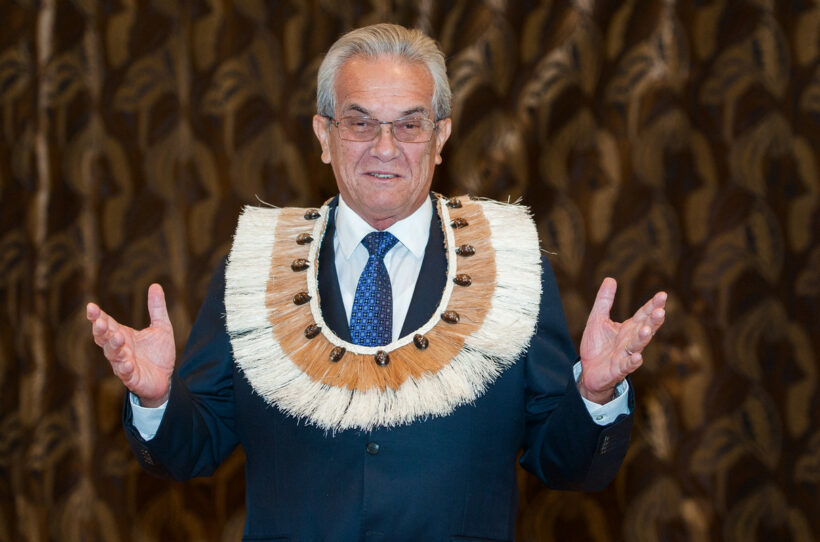Having witnessed the devastating effects of US nuclear testing in his country, Tony de Brum, the Marshall Islands’ foreign minister, took the unprecedented step of bringing cases against the nine nuclear-weapon states before the International Court of Justice in 2014, seeking to hold them accountable for their failure to comply with the provisions of the Nuclear Non-Proliferation Treaty (NPT) and customary international law.
Tony de Brum was born on 26 February 1945 and grew up at a time when the United States of America conducted 67 atomic and thermonuclear weapons tests in the Marshall Islands. At the age of nine he witnessed the “Bravo shot” at Bikini Atoll, the largest US nuclear test in history, which produced an explosion 1,000 times more powerful than the Hiroshima bomb.
After graduating from college in 1968, de Brum became the Marshall Islands’ chief negotiator with the United States, serving as Vice-Chairman of the Marshall Islands Status Commission. In this position, he led the drafting of the Marshall Islands’ constitution and advocated annually at the UN Security Council for the Marshall Islands to be granted full independence. De Brum’s persistent efforts were rewarded when the United States and the Marshall Islands signed the Compact of Free Association in 1986.
Convinced that no nation should suffer the devastating effects of nuclear weapons like the Marshall Islands, from his post as foreign minister, he filed historic lawsuits in April 2014 at the International Court of Justice against the nine nuclear-weapon states – China, North Korea, the United States, France, India, Israel, Pakistan, the United Kingdom and Russia – for failing to negotiate in good faith towards global nuclear disarmament, as required by the NPT and customary international law.
To date, India, Pakistan and the UK have accepted the tribunal’s jurisdiction to hear the case, and court proceedings are ongoing and are expected to last two to three years. In these cases, popularly known as the “Nuclear Zero claims”, the Marshall Islands is not requesting compensation for past damages. Instead, what they are asking is that the Court declare that the nuclear-weapon states have breached their nuclear disarmament obligations and order them to take all necessary steps within one year of the judgment to comply with those obligations, including the continuation of negotiations for a nuclear disarmament convention under strict and effective international control.
De Brum (1945-2017) dedicated his life to the pursuit of independence, security and sustainability for the Marshall Islands. He fought to promote the vision of a world free of nuclear weapons.
He was also a leader on climate action, aware of the grave dangers posed to island nations by climate change. As an architect of the 2013 Majuro Declaration for Climate Leadership, de Brum was instrumental in securing commitments from non-violent island states to take concrete action to combat climate change. Subsequently, it also played a key role in the adoption of the Paris Agreement.
These actions, inspired by personal coherence, also earned him international recognition, being awarded the Nuclear Age Peace Foundation’s 2012 Distinguished Peace Leader Award, and recognised with the “Nuclear-Free Future Award” in October 2015. In the same year, he received the Right Livelihood Award.
Just a month and a half after the Treaty on the Prohibition of Nuclear Weapons (TPNW) was passed at the United Nations, Tony departed for other worlds, with his work accomplished. We are left with his example and to finish the task, which is the dream of most of us: to live in a world free of nuclear weapons.
With information from the Right Livelihood Award organisation










